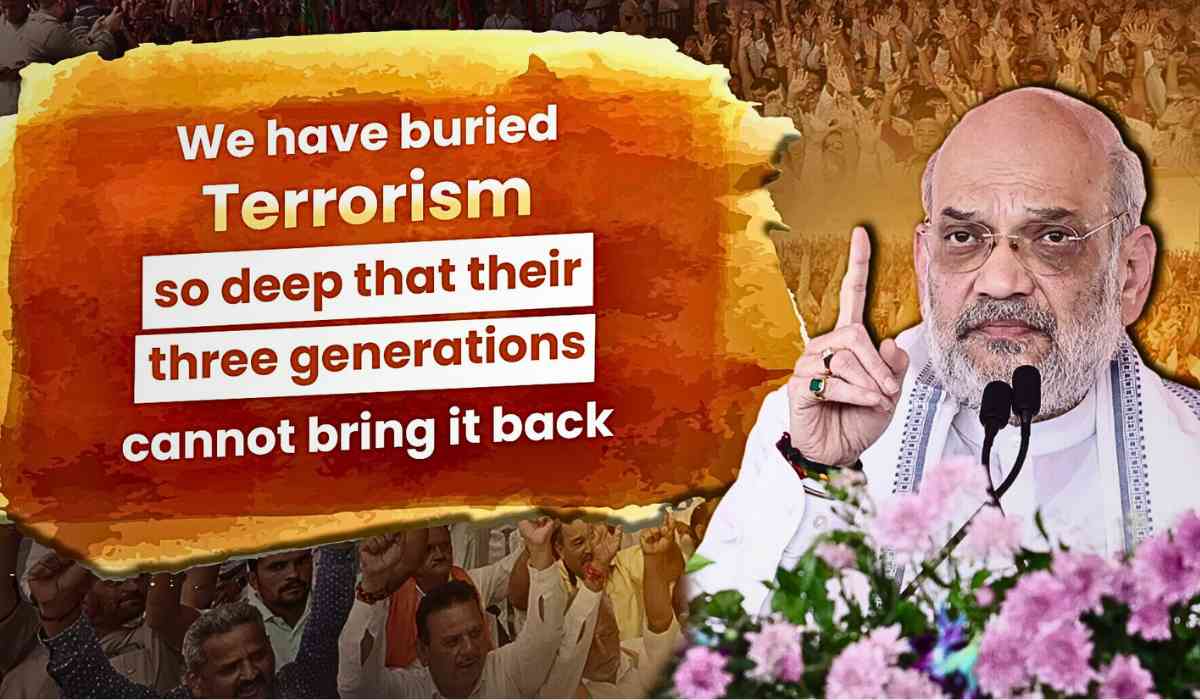Union Home Minister Amit Shah recently declared that the "terror ecosystem" in Jammu and Kashmir (J&K) has been crippled, a statement that came amid a surge in militant violence, including the deadly Pahalgam terror attack on April 22, 2025. This attack, which targeted tourists in the picturesque Baisaran valley, resulted in the deaths of at least 26 civilians and injuries to many others, shaking the region and the nation.
The Context of Amit Shah’s Statement

Amit Shah's assertion about crippling the terror network in J&K reflects the Indian government's long-standing narrative of making significant progress in combating terrorism in the region. Over the past years, security forces have intensified operations against militants, aiming to restore peace and normalcy. However, the Pahalgam attack starkly contrasts this claim, demonstrating that despite efforts, terror threats remain potent and capable of inflicting severe harm.
The Pahalgam Attack: A Grim Reminder

The attack involved terrorists descending from the mountains and indiscriminately firing on a group of tourists, many of whom were innocent civilians enjoying the natural beauty of the area. The incident not only caused tragic loss of life but also raised serious concerns about the safety of tourists and the overall security situation in J&K. The attack was condemned widely, including by Prime Minister Narendra Modi, who vowed justice and reaffirmed India’s unshakable resolve against terrorism.
Should Amit Shah Be Held Responsible?
Holding a political leader directly responsible for such attacks requires careful consideration. Amit Shah, as Union Home Minister, oversees internal security and counter-terrorism policies. His statement about crippling the terror ecosystem suggests confidence in the government's strategy. Yet, the occurrence of such a deadly attack indicates gaps in intelligence, preparedness, or implementation.
From a neutral perspective, responsibility in such complex security environments is shared among multiple agencies and levels of governance, including local administration, police, intelligence, and central forces. Terrorism is a multifaceted challenge involving cross-border elements, local grievances, and radicalization, making it difficult for any single individual to guarantee absolute security.

Accountability and Security
Political opponents and critics often demand accountability from the ruling government and its ministers, especially after such incidents. For instance, Congress leaders have urged the government to take concrete steps beyond rhetoric to ensure the safety of civilians and tourists. Meanwhile, government officials emphasize ongoing operations to neutralize terrorists and promise harsh consequences for perpetrators, underscoring a zero-tolerance policy.
The balance between praising security successes and acknowledging ongoing threats is delicate. While progress has been made in weakening terror networks, isolated but severe attacks reveal vulnerabilities that need urgent attention. This calls for continuous evaluation and strengthening of intelligence gathering, community engagement, and rapid response mechanisms.
A Complex Security Landscape

Amit Shah’s claim that the terror ecosystem in J&K is crippled must be viewed in the broader context of an evolving security situation. The Pahalgam terror attack tragically highlights that terrorism remains a grave challenge. Assigning sole responsibility to Amit Shah oversimplifies the issue, which involves multiple actors and factors.
The government’s role is to continuously adapt strategies to protect citizens and visitors, while political discourse should focus on constructive criticism and collaborative solutions. Ultimately, ensuring peace and security in J&K requires sustained efforts, transparency, and cooperation among all stakeholders.
This article aims to provide an informative and balanced overview of the situation, explaining the complexities around the statement made by Amit Shah and the recent terror attack in J&K, without taking sides but encouraging thoughtful reflection on security and accountability.
With inputs from agencies
Image Source: Multiple agencies
© Copyright 2025. All Rights Reserved Powered by Vygr Media.























